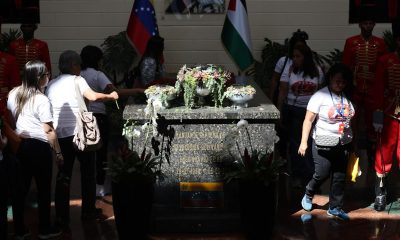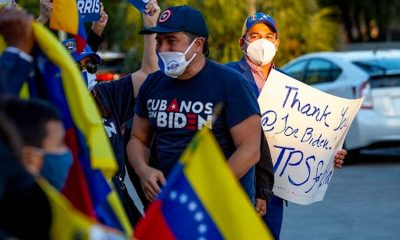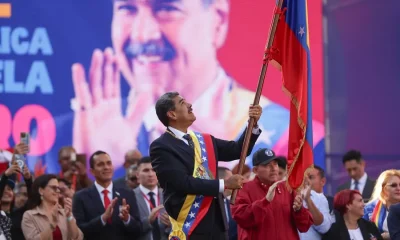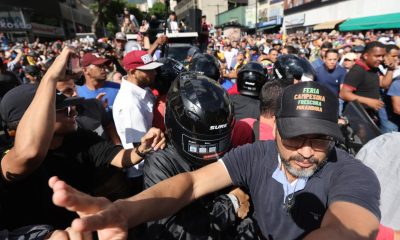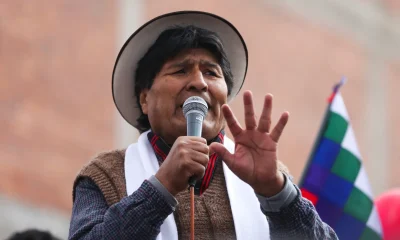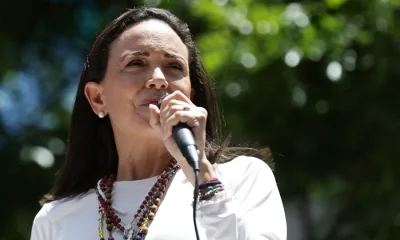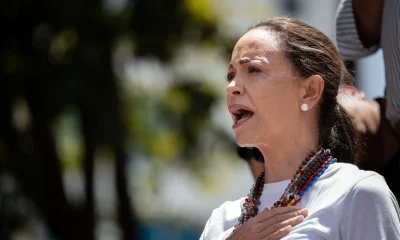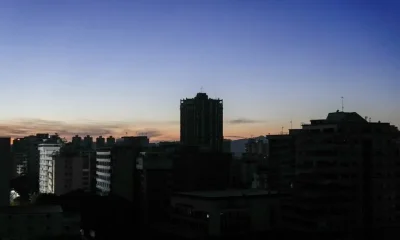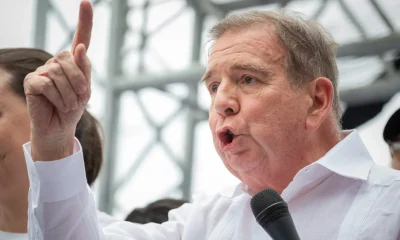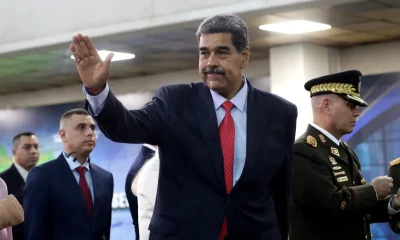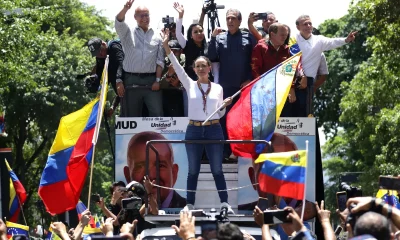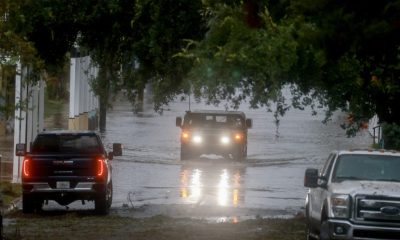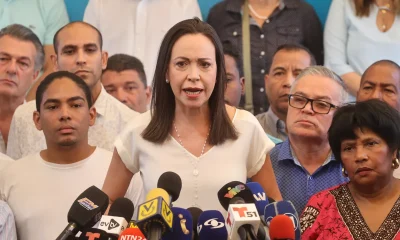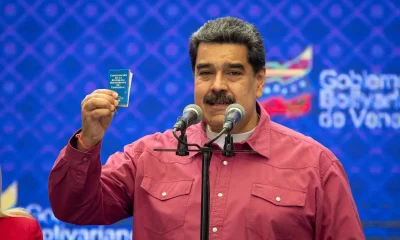International
Argentine prosecutor opens case for crimes against humanity in Venezuela
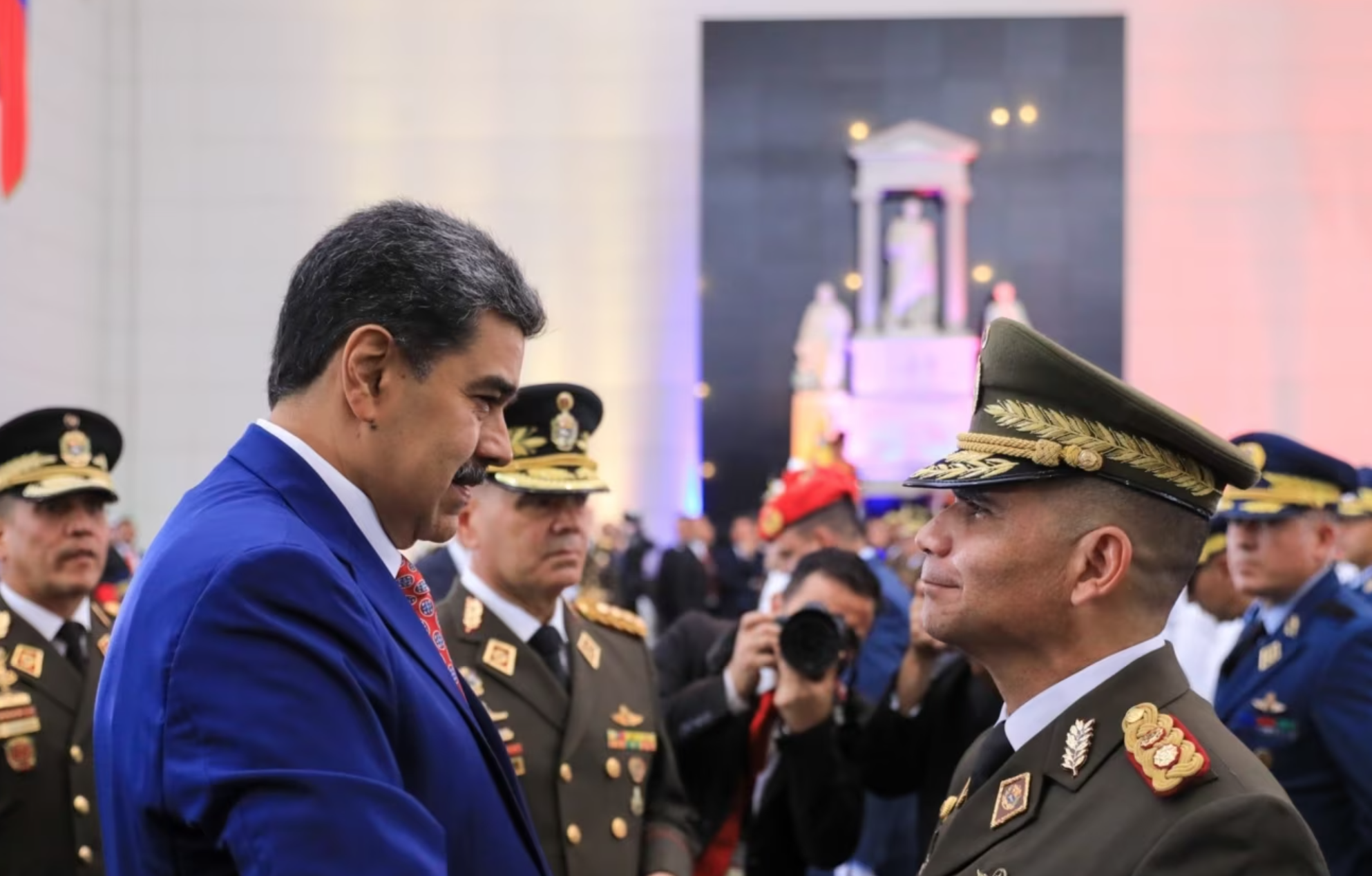
July 13 |
An Argentine prosecutor charged Venezuelan military officers who served as high commanders of the Bolivarian National Guard during the 2014 street protests with alleged crimes against humanity against opponents of the government of Nicolás Maduro.
The measure was ordered by federal prosecutor Carlos Stornelli, who resolved to push forward a criminal action “as allegedly responsible to, at least at the time, Major General Juan José Noguera Pietri, commander of the Bolivarian National Guard and Major General José Dionisio Goncálvez Mendoza, commander of the People’s Guard,” according to the provision released on Wednesday.
The International Criminal Court in The Hague reopened an investigation also for crimes against humanity for what happened during the demonstrations nine years ago.
The Argentine prosecutor also asked the United Nations, the Organization of American States (OAS) and the Inter-American Commission on Human Rights (IACHR) to send “copies of the reports of the international missions sent to Venezuela and all actions related to the dead demonstrators”.
The official of the Attorney General’s Office charged a dozen military officers of different ranks, including brigadier generals, colonels, lieutenant colonels and sergeants of the Carabobo and Tocuyito detachments.
Stornelli’s ruling, to which AP had access, was based on a complaint filed by the Clooney Foundation for Justice (CFJ), taking into account Argentina’s human rights jurisprudence.
This organization represents the families of two Venezuelan protesters killed nearly a decade ago.
The refusal of the Venezuelan justice system to investigate the leaders of the Bolivarian National Guard (only junior officers were tried as perpetrators) led the Clooney Foundation to bring a legal case before the Argentine courts, which have relied on the principle of universal jurisdiction to try crimes against humanity committed outside its territory.
It states that “the organized attack against the civilian population between February and May 2014 responded to a policy of the Venezuelan State” and that the murders of at least 25 demonstrators at the hands of security forces or collectives were part of a “systematic plan” of repression against opponents.
The complainants, based on the Rome Statute governing the International Criminal Court, argue that “the military commander shall be criminally responsible for crimes within the jurisdiction of the International Criminal Court committed by forces under his command.”
In his ruling, Stornelli requested a series of measures that must be previously endorsed by a federal judge, among them the release of exhortations to the Venezuelan justice system to send copies of the judicial proceedings and to the hospitals where the victims were assisted in order to access medical records, a list of the professionals who attended them and death certificates.
International
Federal immigration agents kill man in Minneapolis, sparking protests and outrage

Federal immigration agents shot and killed a 37-year-old Minneapolis man during an operation on Saturday, authorities confirmed, sparking new protests and deepening outrage over federal immigration enforcement in the city.
The victim, identified as Alex Jeffrey Pretti, was a U.S. citizen and intensive care nurse who worked at a Veterans Affairs hospital and was widely respected in his community, according to colleagues and news reports.
Officials said the shooting occurred during a targeted immigration raid in south Minneapolis. The Department of Homeland Security (DHS) described the incident as an act of self-defense by agents who believed the man posed a threat.
However, videos reviewed by multiple outlets and eyewitnesses show Pretti holding a phone and not displaying a weapon before being pepper-sprayed, tackled by agents and then shot multiple times, raising serious questions about the official account.
The killing comes amid a broader federal immigration enforcement operation in the city and follows another controversial shooting in early January in which Renée Good, a 37-year-old U.S. citizen, was fatally shot by an ICE agent, leading to widespread protests and criticism of federal tactics.
International
Delcy Rodríguez seeks political agreements after Maduro’s ouster
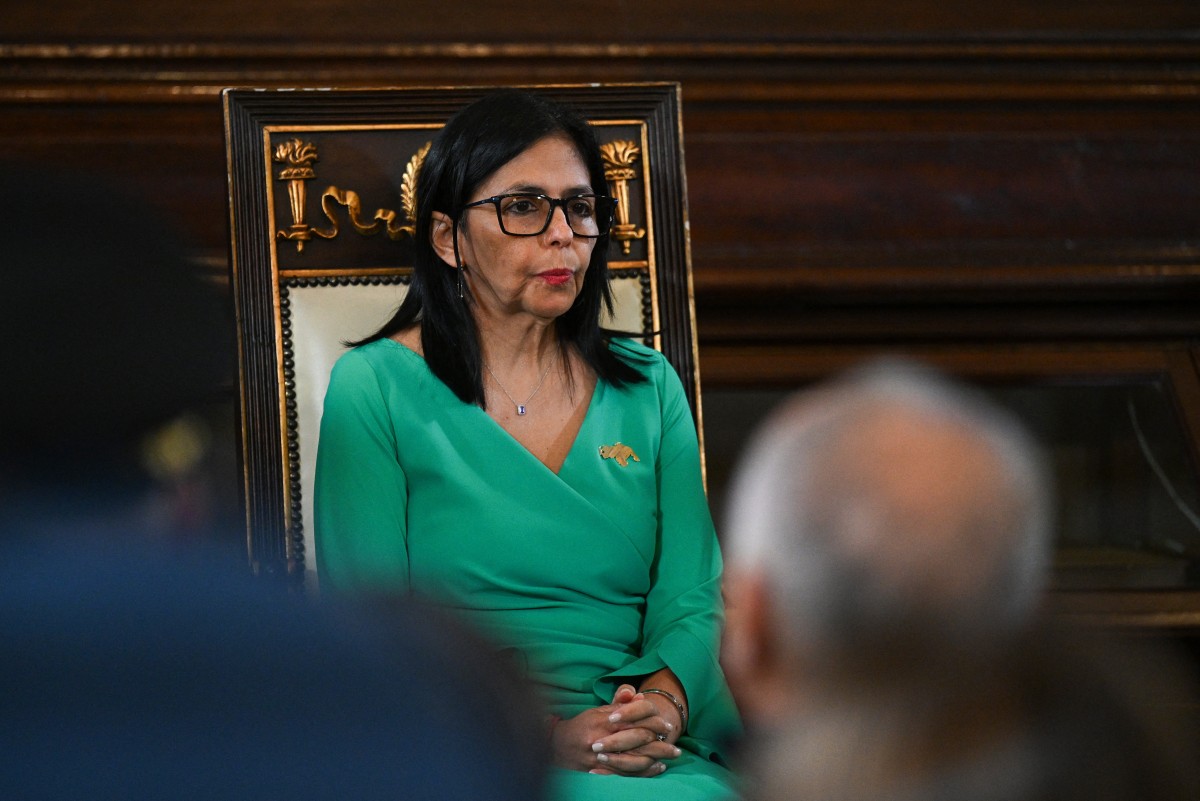
Venezuela’s interim president, Delcy Rodríguez, on Saturday called for “reaching agreements” with the opposition to achieve “peace” in the country, which the United States says it now controls following the military operation that removed President Nicolás Maduro from power.
Rodríguez, who previously served as Maduro’s vice president, assumed interim leadership after the leftist leader was captured on January 3 during a military incursion that left nearly 100 people dead.
In her first public statements since taking office, Rodríguez signaled a shift in the strained relationship between Caracas and Washington, while also committing to the release of a “significant number” of political prisoners.
“There can be no political or partisan differences when it comes to the peace of Venezuela,” Rodríguez said during an address in the coastal state of La Guaira, broadcast on state television VTV.
“From our differences, we must speak to one another with respect. From our differences, we must meet and reach agreements,” she added.
The day before, Rodríguez instructed the head of Parliament — her brother Jorge Rodríguez — to convene talks with various political sectors in the country aimed at achieving “concrete and immediate results.”
International
Bogotá and Quito Seek Dialogue After Tariffs and Power Cut Escalate Tensions
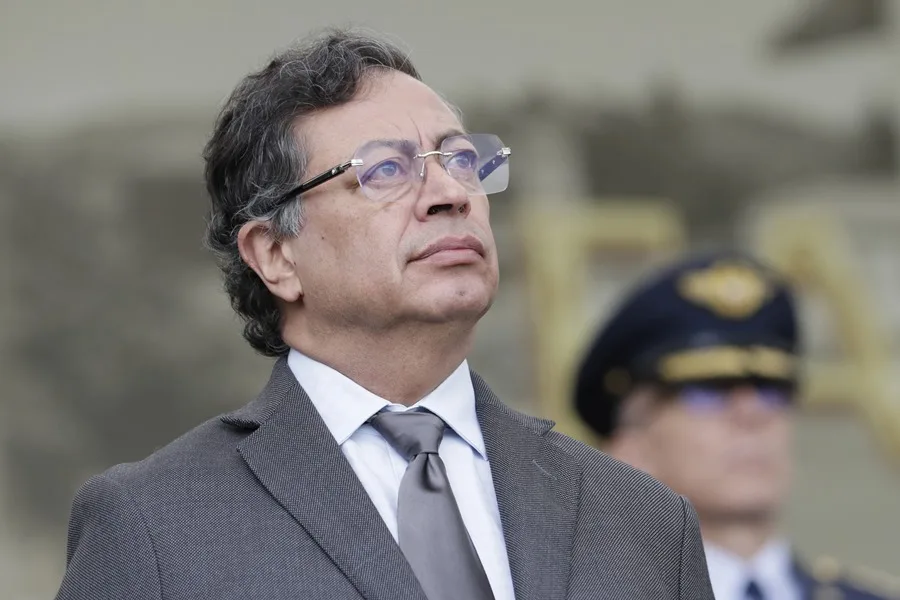
Bogotá and Quito will hold an emergency bilateral summit next week amid recent developments that have strained relations between the two countries.
Tensions escalated this week after Ecuadorian President Daniel Noboa unexpectedly announced a 30% tariff on Colombian imports. Colombia responded with a reciprocal measure, imposing the same tariff on around 20 Ecuadorian products and suspending electricity exports to Ecuador.
Aware that electricity imports are critical to easing Ecuador’s recent energy crises, Quito further imposed a 30% tariff on the transportation of Colombian oil through its territory.
However, recent statements from the Ecuadorian government suggest that dialogue between the two sides has intensified in recent hours. Ecuador’s Minister of Foreign Affairs, Gabriela Sommerfeld, confirmed that active conversations are under way.
In Colombia, segments of the business sector have welcomed the prospect of negotiations. The National Business Council (Consejo Gremial Nacional, CGN), for instance, urged both governments to restore commercial relations, warning that the dispute “puts jobs and regional economic stability at risk.”
-
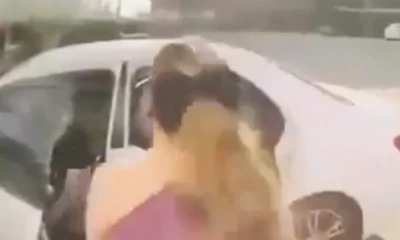
 International4 days ago
International4 days agoMexican influencer “La Nicholette” kidnapped in exclusive area of Culiacán
-

 International4 days ago
International4 days agoTrump to invite Venezuela’s interim president Delcy Rodríguez to Washington
-

 Central America4 days ago
Central America4 days agoMazatenango Carnival cancelled amid State of Siege in Guatemala
-

 International4 days ago
International4 days agoMajor winter storm to blanket U.S. and Canada with snow, ice and arctic cold
-

 International4 days ago
International4 days agoMarkets rise as Trump halts Europe tariffs and floats Greenland agreement framework
-
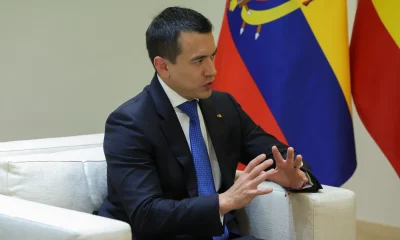
 International4 days ago
International4 days agoColombia slams Ecuador’s 30% tariff as ‘economic aggression’
-

 International5 days ago
International5 days agoTrump announces preliminary NATO agreement on Greenland, suspends tariffs on Europe
-

 International4 days ago
International4 days agoVenezuela’s interim president predicts 37% increase in revenues for 2026
-

 Internacionales3 days ago
Internacionales3 days agoMajor winter storm threatens “catastrophic” ice and snow across much of the U.S.
-

 International2 days ago
International2 days agoTrump-Era Defense Plan Prioritizes Border Security and Scales Back Global Commitments
-

 International4 days ago
International4 days agoJapan reopens Kashiwazaki-Kariwa Plant despite public concerns
-

 International4 days ago
International4 days agoFour minors killed in deadly clash between FARC dissidents in Colombia’s Amazon
-

 Central America3 days ago
Central America3 days agoGuatemala’s president rules out negotiations with inmates after prison riots
-

 International3 days ago
International3 days agoGuatemala considers sending high-risk gang members to military prisons
-

 International2 days ago
International2 days agoBogotá and Quito Seek Dialogue After Tariffs and Power Cut Escalate Tensions
-
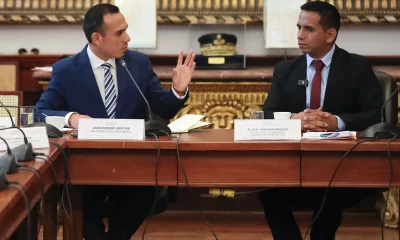
 International4 days ago
International4 days agoJosé Jerí claims destabilization attempt after videos of secretive meetings surface
-

 International21 hours ago
International21 hours agoDelcy Rodríguez seeks political agreements after Maduro’s ouster
-

 International3 days ago
International3 days agoRights group says over 5,000 killed in Iran protests, mostly civilians
-

 International21 hours ago
International21 hours agoFederal immigration agents kill man in Minneapolis, sparking protests and outrage































